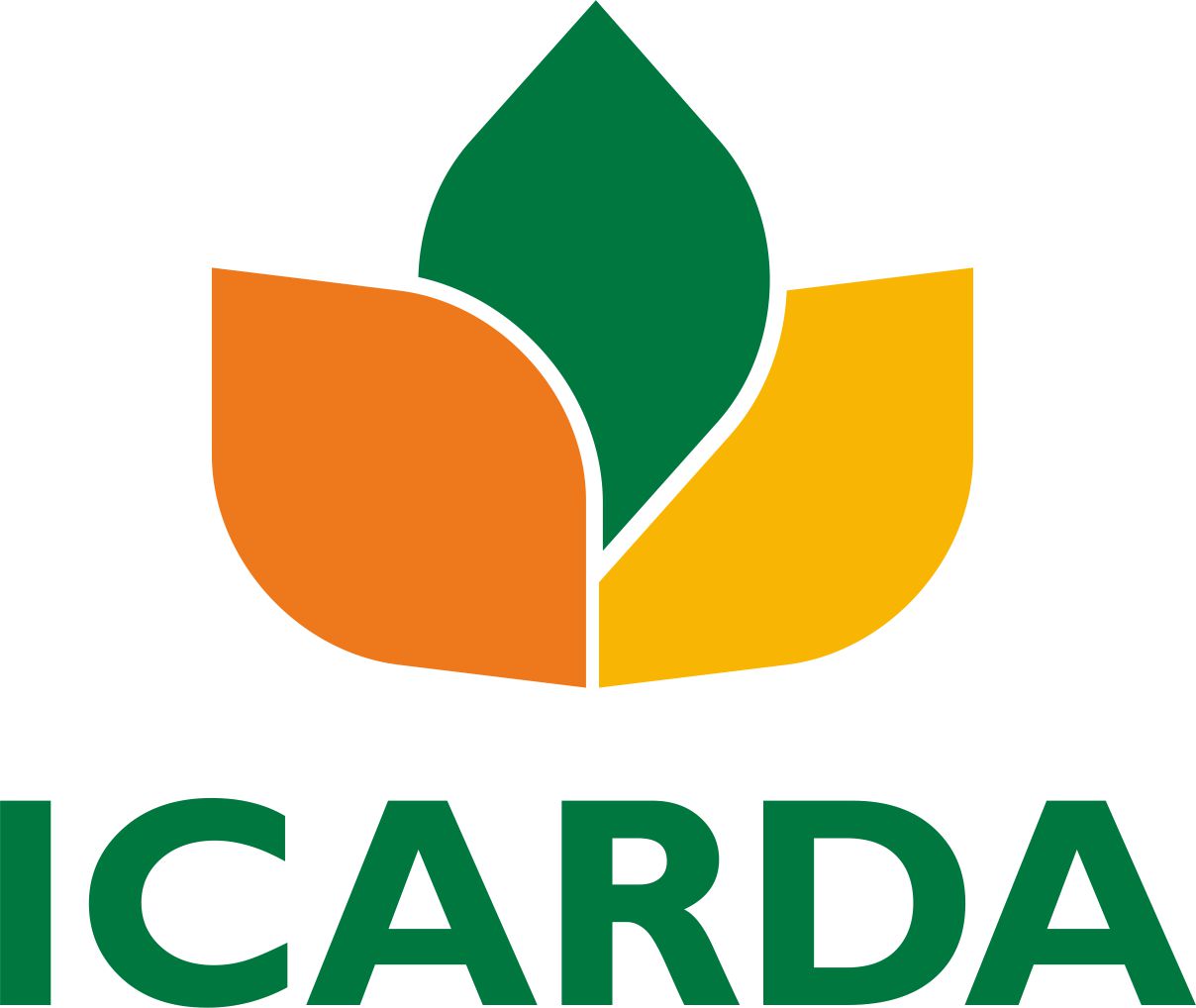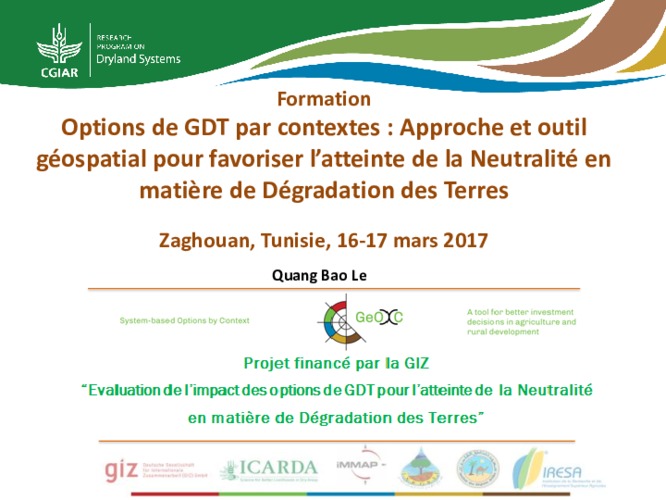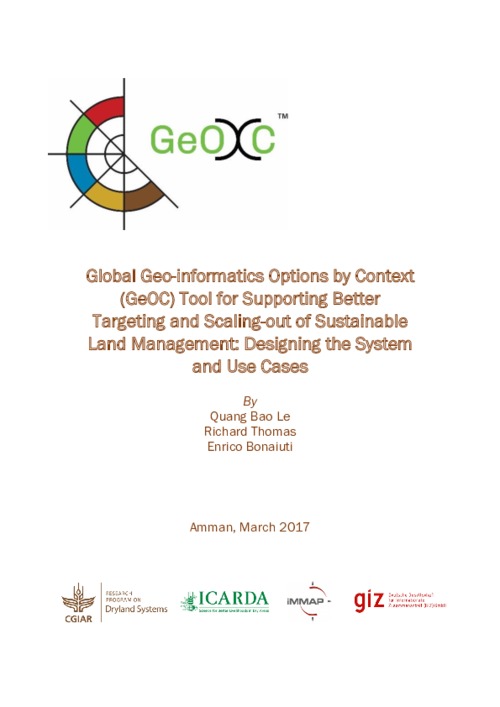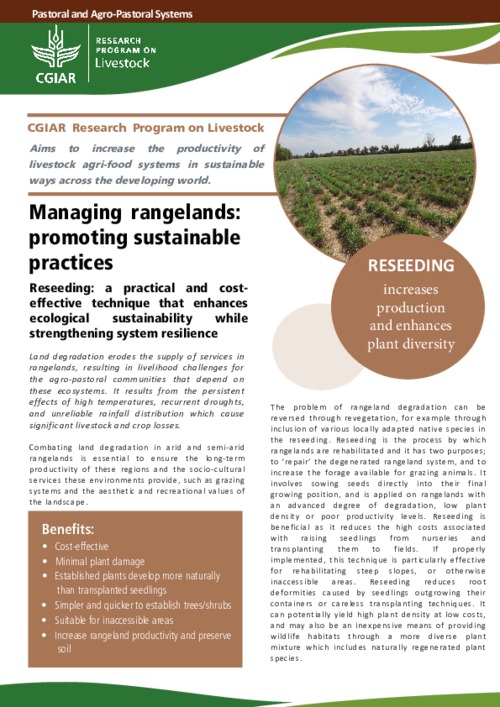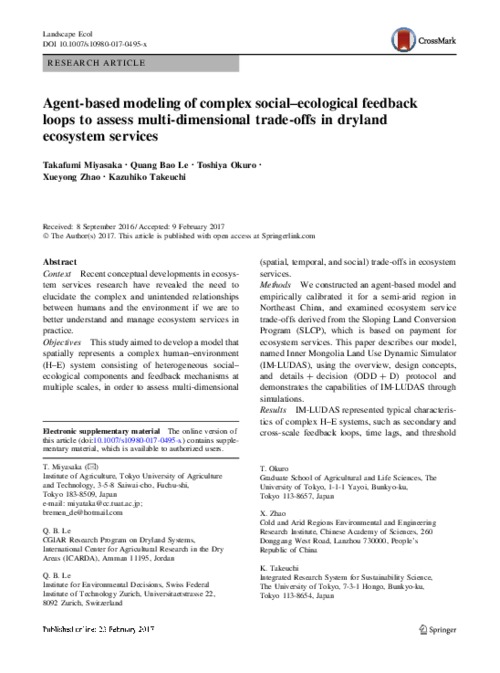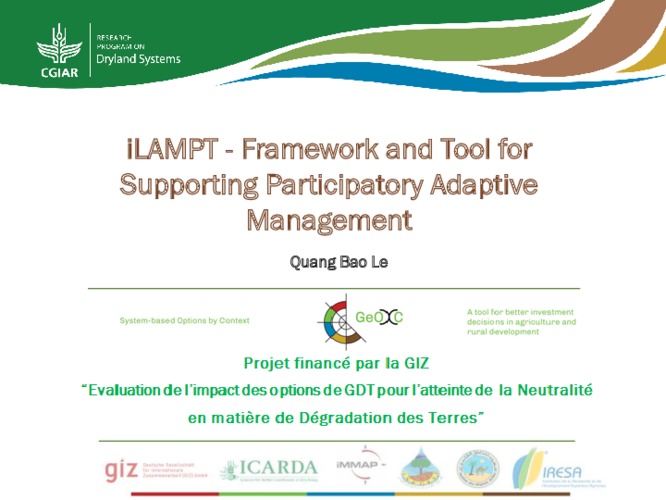Location
The International Center for Agricultural Research in the Dry Areas (ICARDA) was established in 1977. It is one of 15 such centers supported by the CGIAR. ICARDA’s founding mandate to promote agricultural development in the dry areas of developing countries remains highly relevant today.
ICARDA works with a tight focus on the problem-solving needs of resource-poor farmers, achieving this through the in-field delivery of its research outputs. Although global food production has increased by 20 per cent in the past decade, food insecurity and poverty remain widespread, while the natural resource base continues to decline.
International research centers such as ICARDA, which have helped drive previous improvements, continue to deliver new technologies to support sustainable growth in agriculture, and crucially, to work with a wide range of partners to accelerate the dissemination of these technologies.
ICARDA’s biggest strength is its staff – 600 highly skilled men and women from 32 countries. Our research and training activities cover crop improvement, water and land management, integrated crop-livestock-rangeland management, and climate change adaptation.
Other interventions include:
- Water harvesting - supplemental irrigation and water-saving irrigation techniques
- Conservation agriculture methods to reduce production costs and improve sustainability
- Diversification of production systems to high-value crops – horticulture, herbal and medicinal plants
- Integrated crop/rangeland/livestock production systems including non-traditional sources of livestock feed
- Empowerment of rural women – support and training for value-added products.
The ICARDA genebank holds over 135,000 accessions from over 110 countries: traditional varieties, improved germplasm, and a unique set of wild crop relatives. These include wheat, barley, oats and other cereals; food legumes such as faba bean, chickpea, lentil and field pea; forage crops, rangeland plants, and wild relatives of each of these species.
ICARDA’s research portfolio is part of a long-term strategic plan covering 2007 to 2016, focused on improving productivity, incomes and livelihoods among resource-poor households.
The strategy combines continuity with change – addressing current problems while expanding the focus to emerging challenges such as climate change and desertification.
We work closely with national agricultural research systems and government ministries. Over the years the Center has built a network of strong partnerships with national, regional and international institutions, universities, non-governmental organizations and ministries in the developing world and in industrialized countries with advanced research institutes.
THE ‘DRY AREAS’
Research and training activities cover the non-tropical dry areas globally, using West Asia, North Africa, Central Asia and the Caucasus as research platforms to develop, test, and scale-out new innovations and policy options.
Dry areas cover 41 per cent of the world’s land area and are home to one-third of the global population. About 16 per cent of this population lives in chronic poverty, particularly in marginal rainfed areas. The dry areas are challenged by rapid population growth, frequent droughts, high climatic variability, land degradation and desertification, and widespread poverty. The complex of relationships between these challenges has created a "Poverty Trap."
Members:
Resources
Displaying 131 - 135 of 431Introduction of the training program: "Sustainable Land Management Options by Context: Approach and Geospatial tool to support Achieving Land Degradation Neutrality" (French Version)
This presentation (in French) introduced the program of the training "Sustainable Land Management Options by Context: Approach and Geospatial tool to support Achieving Land Degradation Neutrality”, held in Zaghouan on 16-17 March 2017. This activity is under the output "User-friendly, interoperable online tool, containing country-specific, accessible knowledge base of standardized, geo-referenced SLM, to enable stakeholders to query SLM options in different context" of the GIZ funded project “Impact evaluation of SLM options to achieve land degradation neutrality”.
Global Geo-informatics Options by Context (GeOC) Tool for Supporting Better Targeting and Scaling-out of Sustainable Land Management: Designing the System and Use Cases
Sustainable Land Management (SLM) are required to achieve Land Degradation Neutrality (LDN). SLM options are fitted to the social, economic and ecological contexts. The high contextual diversity of drylands in particular prevents the design and application of “uniform blanket” policies to promote SLM over large scales where significant impact is expected.
Managing rangelands: promoting sustainable practices: Reseeding: a practical and costeffective technique that enhances ecological sustainability while strengthening system resilience
The problem of rangeland degradation can be reversed through revegetation, for example through inclusion of various locally adapted native species in the reseeding. Reseeding is the process by which rangelands are rehabilitated and it has two purposes; to ‘repair’ the degenerated rangeland system, and to increase the forage available for grazing animals. It involves sowing seeds directly into their final growing position, and is applied on rangelands with an advanced degree of degradation, low plant density or poor productivity levels.
Agent-based modeling of complex social–ecological feedback loops to assess multi-dimensional trade-offs in dryland ecosystem services
Context: Recent conceptual developments in ecosystem services research have revealed the need to elucidate the complex and unintended relationships between humans and the environment if we are to better understand and manage ecosystem services in practice.
Objectives: This study aimed to develop a model that spatially represents a complex human–environment (H–E) system consisting of heterogeneous social–ecological components and feedback mechanisms at multiple scales, in order to assess multi-dimensional (spatial, temporal, and social) trade-offs in ecosystem services.
iLAMPT - Framework and Tool for Supporting Participatory Adaptive Management
This presentation presented the iLAMPT as framework and tool for supporting participatory adaptive management. It comes under the second session “Evaluations of impacts of SWC planning scenarios on soil erosion across Rmel watershed” of the workshop "Systems Tool-aided Participatory Development of Sustainable Land Management Scenarios: 2nd Workshop", held in Zaghouan on 14-15 March 2017.

